Given the subjects and people I write about, I’m used to people disagreeing with me. I’m not afraid to stand up for what I believe is right and while naming names. I’m used to getting angry tweets and avoiding comment sections like my life depended on it. And let’s face it: no one is perfect, including myself. I’m not without error, and none of my opinions are flawless. A rule of mine is that I don’t dish out anything that I’m not willing to take, so I understand that when I critique others, I open myself up to the same.
But there’s one aggravating and flat out disrespectful thing that people do when they disagree with me that I want to discuss. People tend to trash my education and the effort I put into earning it when explaining why they think I’m wrong. Let me give you an example:
Me: [Says some opinion about LGBT issues, Bible translation, or some cultural Christian issue.]
Them: Well, I prayed about it and this is what God told ME! [heavy incorrect usage of biblical often follows, which I talk more about here.]
Me: Well, I understand that. I’m know how you feel, but that’s not really what the text is saying. There’s a lot more to the situation that you’re missing.
Them: I don’t need fancy book learning to know what the Bible says! And as a matter of fact, I have read! I read Joyce Meyer, TD Jakes, John Piper, Tony Evans, Tim Keller, my pastor’s blog, and my favorite gospel artist sang about it, so I can have an opinion!
Me: Of course you can have an opinion. But reading people who tend to agree with you without reading any one else isn’t the same as research.
Them: So you think you’re better than me because you have your degrees? I have the Holy Ghost!
Me: I never said that I was…I… [facepalm]
And that’s not including the situations when people really try it, saying some of the most hurtful and disrespectful things. Stuff that truly makes you wonder, “Would you say that if I was in front of you?” At least a few times a month I have to suppress the urge to lose all the sense that I have and revert back to some unsavory roots. Because when I see folks who I KNOW are strong with their fingers and weak with everything else, I have to fight the urge to call them out.
I usually look like a jerk in these situations. It’s hard to not look like a snob when you have to detail your list of academic achievements, especially when someone else brings it up first. And while I’m not immune from pride, it sucks that defending my hard-earned education is viewed as me being a know-it-all who thinks he’s better than everyone.
This wasn’t always the case. I used to shy away from being proud about my theological education. That was until my Greek professor pulled me aside and taught me an important lesson. He told me that while I’m a person of faith, being theologically trained is also a profession. “Don’t debate people who aren’t your professional peers,” he said. “People don’t debate doctors, or mechanics, lawyers, or surgeons. They earned their stripes just like you;re earning yours. Offer your opinion, be graceful in disagreement, but never debate with someone who doesn’t have similar credentials.”
I haven’t always taken his advice. There are times when I’m not graceful in disagreement. I often use humor to diffuse the emotional blows that come from dealing with people who haven’t decided if your particular brand of humanity is worth compassion or concern. I admit that it isn’t always pretty, but it helps me not to curse people out or cry everyday. There are times when I debate people who don’t have theological training, if for no other reason than to put different ideas on display. Whatever the case, this stern talking to by my professor caused me to understand that I was being shaped into a professional, and that I should demand to be respected as such. I’m skilled in my craft, and have the authority to make decisions and present ideas as a result.
But as a minister and a scholar, I have to interact with scores of folks who aren’t into the books in the same way. I try to share what I know on social media to enhance awareness and sharing different understandings. But that sometimes runs into a brick wall. They’ve held certain beliefs for years, so they often think that their personal faith journey is the comparable to the academic discipline of studying the Christian faith.
It’s not. Not by a long shot.
And this isn’t to say that someone’s faith is only worth something if they have degrees to back it up. I’m a big advocate for an informed faith, but there are plenty of bankrupt, immoral, and corrupt ideas that circulate in and through universities everywhere. A personal connection with the divine is priceless, and there is no book, credential, or degree that can be conferred to make that can make up for it. I know plenty of people who don’t have seminary education that think about Christianity in ways that are healthier than many of the people I went to school with. Book knowledge doesn’t automatically equal right thinking or right religious practice.
Still, there is something to be said about spending intense, dedicated time to study something. My faith and practice is rooted in knowledge of history and context, something I take seriously since I am responsible for leading other people. I was taught to never pull anything out of thin air, but to tend to ideas that preceded me so that other ideas can grow from my work. And since seminary is a spin on the Latin word for seed bed, the growing and tending aspect makes sense. I’m not pulling stuff out of the air; I’m firmed rooted in the history of the faith. And those roots are a result of my education.
I’ve been studying Christianity on an academic level since I was twenty years old. I’m a few weeks shy of thirty-two. I have a minor in religion from Rutgers University, a Master of Divinity from Howard University, a Master of Theological Study from Wesley Theological Seminary, and I’m working on a PhD from Howard studying communication issues in Christian culture. None of them were given to me. They were earned.
I’ve been trained on how to preach, how to read and analyze texts, and how to think through complicated social/political/critical theological issues by a group of successful, qualified, and even world-renowned scholars. These folks have taught me how to read Greek, how to read, write, and search for information. They’ve written books and shaped the way that even some of your favorite preachers think and approach what they do concerning the Bible and race, feminism/womanism, ethics, and other issues that pertain to faith and life. None of these folks are slack, and they didn’t allow me to be slack either. In most instances, I’ve earned As in their classes. To insult my training isn’t just a smack in my face, but it’s a suggestion that the people who trained and supported me are also not up to par. That couldn’t be further from the truth.
And even with that extensive list that I just laid out, it’s fine to disagree with me. My voice is valuable, but it is but a drop in a huge sea of opinion. I don’t argue or preach or post for likes to be a fave on the gram. I do this work because I want to demonstrate a healthy, holistic faith. I want people to agree with me because I made a persuasive argument which causes a change of heart. Just like a doctor, if you don’t like my view, feel free to get a second opinion. There are people with my level of education and more who think differently than I do. But to clown my education and call me prideful, especially when I didn’t bring it up, is in a word…whack. And it’s hypocritical to disparage my education while expecting me to respect your tarry service, because my vocational route is just as much God’s call as your three-day fast might be.
You may disagree with me, but it’s not because I’m sloppy. It’s not because I went to bad schools. It’s not because seminary learning jacked me up. And it’s definitely not that I don’t know what I’m talking about. It’s that we genuinely, deeply disagree. And that’s fine. But what I don’t and never will have time for is my experience, effort, time, and the commitments of my mentors to my formation to be disrespected. Because if we’re measuring faithfulness by the amount of Bible study hours logged, then there’s a special seat in heaven for me and it’s probably much nicer than yours. But suggesting that my studies make me a better Christian is prideful, just like suggesting that someone is a lesser Christian because of their lack of education is rude, disrespectful, classist, and unfair. If the only thing you have to say is that my education has led me astray, then you don’t have an argument. It’s okay to say, “we disagree” and move on.
Deep faith doesn’t negate scholarship. If done correctly, theological education humbles you and often deepens your faith. You realize what you don’t know, and the limits to what you can ever figure out. But just as book knowledge can puff someone’s head up, so can the subjective ideas and wisps in the breeze that people often confuse for their own spiritual superiority. Humility is a lesson that all of us — scholar and layperson alike—are well served to revisit often. There is no action or effort that can make someone closer to God. Whatever we know, whether it be from books or revelation, is the result of grace…
…so that no person should boast.


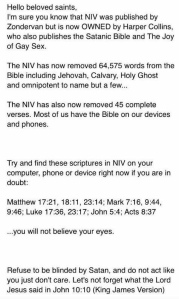




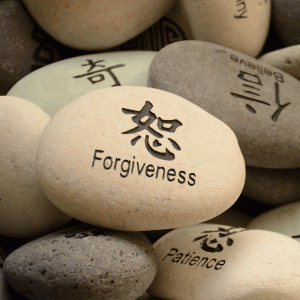

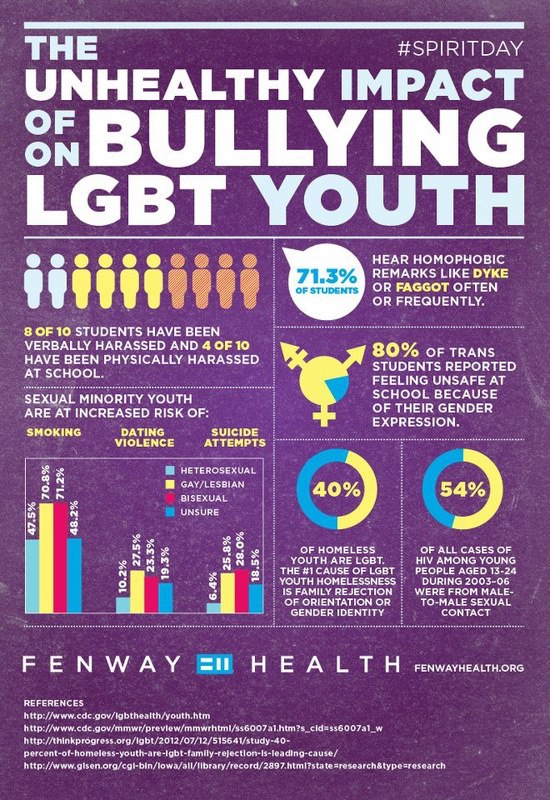
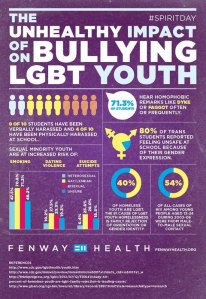


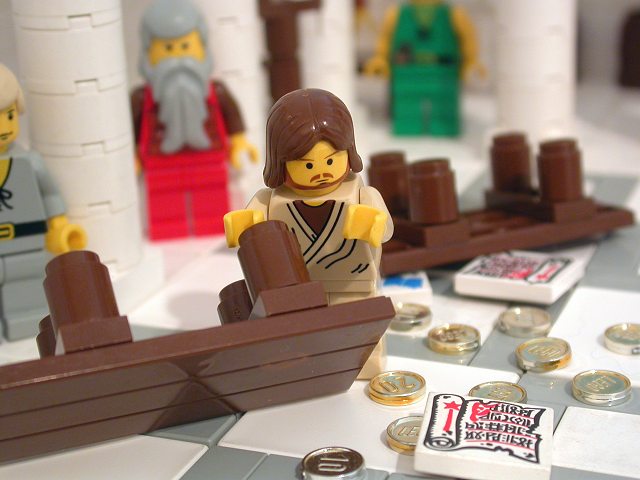
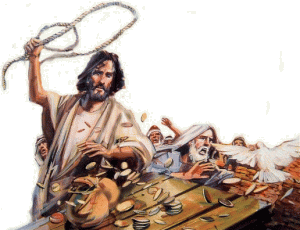

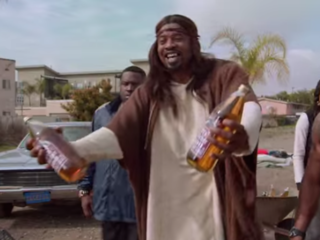
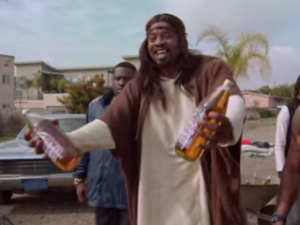
 Still, reality is hard for people to swallow, given that most Christians view Jesus as a spiritual, all encompassing being instead of a blue-collar worker. That it is so difficult to embrace this truth about Jesus, especially amongst churches that hold Bible study in such high regard, demonstrates the vast disconnect. This controversy won’t push more people away from Church; it reveals how much the Church is already removed from society in terms of influence. Those who are up in arms over this presentation of Jesus need to ask themselves why seeing a normal, human, poor, scruffy, foul-mouthed, and yes, Black Jesus is so jarring to their senses. If that question is answered, they’ll have a clue as to why people don’t hold Church in high regard any longer.
Still, reality is hard for people to swallow, given that most Christians view Jesus as a spiritual, all encompassing being instead of a blue-collar worker. That it is so difficult to embrace this truth about Jesus, especially amongst churches that hold Bible study in such high regard, demonstrates the vast disconnect. This controversy won’t push more people away from Church; it reveals how much the Church is already removed from society in terms of influence. Those who are up in arms over this presentation of Jesus need to ask themselves why seeing a normal, human, poor, scruffy, foul-mouthed, and yes, Black Jesus is so jarring to their senses. If that question is answered, they’ll have a clue as to why people don’t hold Church in high regard any longer.